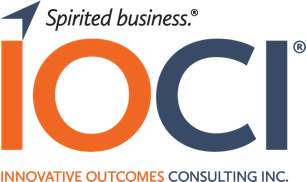
Executive coaching has emerged as a preferred and effective option to help executives build leadership fitness
It would be difficult to find someone who hasn’t had a coach in their life – on the basketball court, in the debate team, at the gym during those moments of dedication to weight loss and healthy living. So it’s no wonder busy executives have embraced this idea in the boardroom as well.
In their Harvard Business Review article, “The Making of a Corporate Athlete,” Jim Loehr and Tony Schwartz link the process of training professional athletes to coaching for executive performance. This involves a disciplined and integrated approach to providing the physical, mental and emotional conditioning to prepare modern executives for a rapidly changing and increasingly complex business environment.
Executive coaching has emerged as a preferred and effective option for organizations that want to help their executives build leadership fitness. Sherpa’s 2016 Executive Coaching Survey results seem to confirm this trend, noting that leadership development is now the primary reason why organizations hire executive coaches.
Eighty-five percent of adult clients reported being satisfied with the coaching experience, according to a 2014 global consumer awareness study at the International Coach Federation.
Keep these five factors firmly in mind
How to establish your coaching relationship
Still, it’s not a relationship to rush into. To reap the benefits, you need to keep these five factors firmly in mind from the get-go:
- Coaching is conversation. And the goal of our discussion is to ask the right questions that help you discover answers for yourself. It’s not someone handing you a cookie cutter plan to follow or a therapist explaining what’s going on inside your head. So don’t arrive expecting a counselor, guru, or teacher – but you can count on finding an experienced leader and accountability partner to support your growth.
- Don’t look for a mini-me. The ICF’s data show that clients usually interview three different coaches and request at least two references from each interviewee. In addition to credentials, you want to look for chemistry – which is not the same thing as a personality match. Sometimes the best coach is someone who isn’t just like you, whose personality contrasts will push you to new viewpoints.
- No one can change who you are. Coaching is a tough love look at your performance, your direction, your goals, and your approaches with the intention of improving your thinking and creating the right strategies for you to apply. Your persistence, hard work and commitment is what ultimately pays off. In other words, only you, not the coach, has the power to achieve the results you want.
- A coach will hold you accountable. To get rewarded for your efforts, you have to put out some energy. Execute. And probably sweat. And just like back when you were in school, “I didn’t have time to get to that” is not an acceptable answer if you want to ace this experience.
- The best time to call a coach is when things are going right. Certainly reach for this resource when things are sliding downhill fast. But why wait until there’s a crisis? Strengthening your best asset – you – is never a wrong move at any point in your life.
Learn more about IOCI’s expertise, business solutions and leadership impact.
Think you’re ready to connect to a coach? Contact IOCI to learn more about the process.
Marialane Schultz is the founder of IOCI. She helps individuals and organizations perform at their best, do meaningful work and be impactful through customized coaching and consulting engagements.

